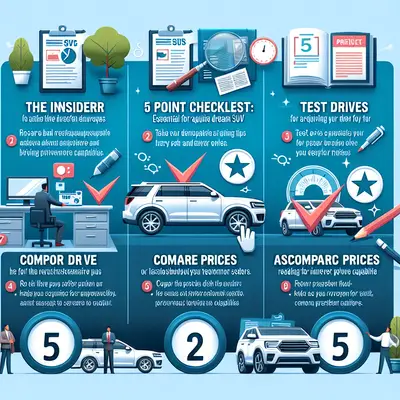1. Fuel Efficiency
Fuel efficiency is a crucial factor to consider. Modern SUVs are becoming increasingly fuel-efficient, thanks to advancements in technology. However, there's still a significant variation between models. It's essential to compare the fuel economy of different SUVs to ensure you're getting a vehicle that's both powerful and economical.
2. Passenger and Cargo Space
SUVs are known for their spacious interiors, but not all models are created equal. Depending on your needs, you may require more seating capacity or cargo space. Assess the interior dimensions of various SUVs, considering legroom, headroom, and the flexibility of seating configurations.
3. Performance and Handling
Performance and handling make a huge difference in your driving experience. Consider factors such as engine power, acceleration, braking, and how the vehicle handles in different conditions. Be sure to test drive several models to get a feel for their performance.
4. Safety Features
Safety should never be compromised. Comprehensive safety features like airbags, anti-lock brakes, stability control, and advanced driver-assistance systems (ADAS) are crucial. Also, check the SUV's crash test ratings from reputable organizations like the Insurance Institute for Highway Safety (IIHS) and the National Highway Traffic Safety Administration (NHTSA).
5. Cost of Ownership
Beyond the purchase price, consider the total cost of owning the SUV. This includes insurance costs, maintenance expenses, and depreciation. Some SUVs may be cheaper to buy but more expensive to own in the long run.
Conclusion
Purchasing an SUV is a significant investment, and it's crucial to make an informed decision. By considering the fuel efficiency, space, performance, safety features, and total cost of ownership, you can ensure that you're investing in an SUV that perfectly suits your needs. Stay tuned to Top SUV News for the latest updates and comprehensive guides on navigating the SUV market.



